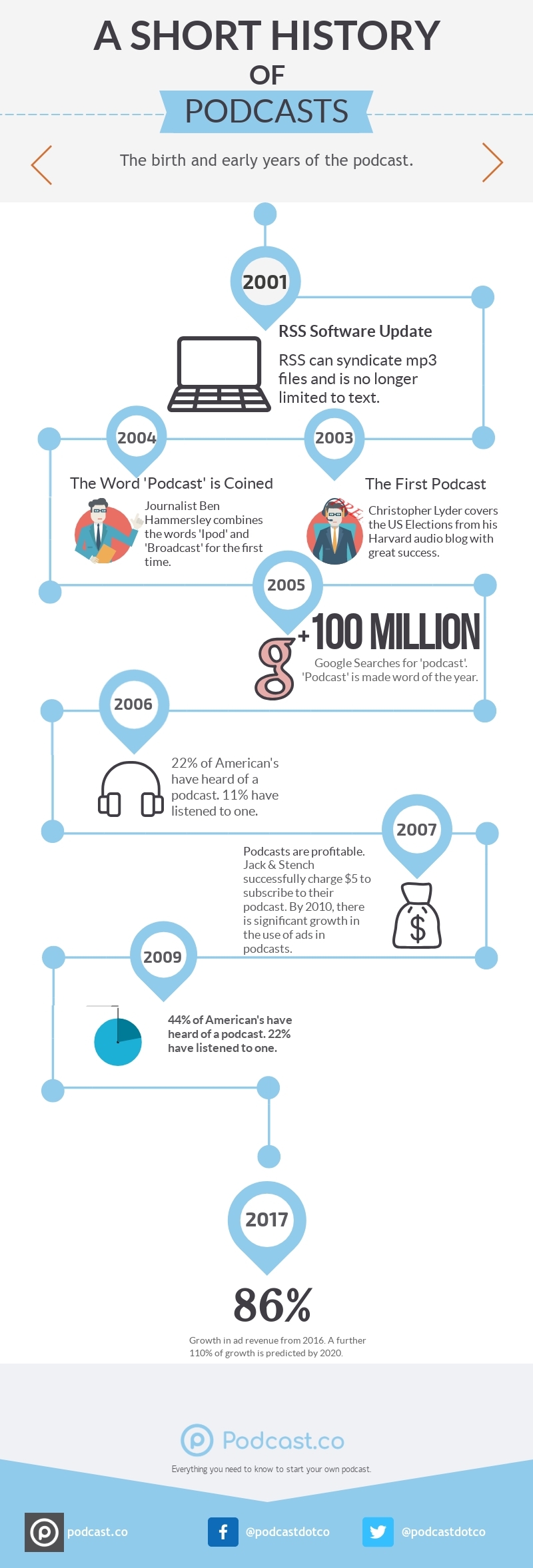Telling stories is part of what makes us human, so the history of podcasting is really part of the bigger picture history of mankind's progress in storytelling. It's useful to know where things came from if you want to know where they're going, so let's dive in. Also - stick around at the end for a nice infographic summarising podcasting history.
How Storytelling Evolved of the Years
For thousands of years, we used to have to remember stories and then recite them around fires. We wanted better ways of doing things. Being limited in the stories you can listen to by your physical location and the people you know is far from ideal as it limits humanities circulation of knowledge. However, it's still great for when you're at the bar or out with friends.
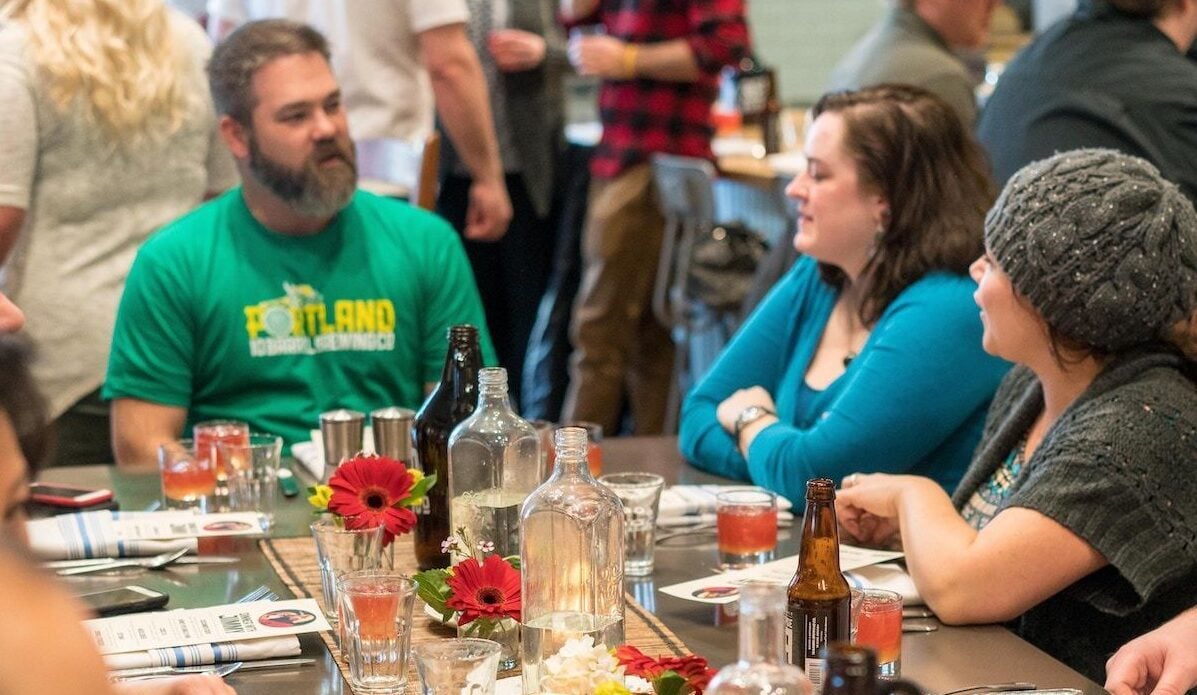
So, we created telephones, then used crystals to power radios and now in 2018 more people are starting to search for audio content on the internet in the form of podcasts.
Many people thought in the 1940’s that radio was going to die as television became more popular. TV sucked a lot of the talent out of radio and it kind of makes sense; 30% of your cortex is dedicated to processing vision and only 3% is dedicated to processing sound - TV satisfies both senses. It’s hard to compete with that level of engagement.
Despite this, radio proved resilient and simply readapted itself.
It’s hard to kill audio because it stimulates the imagination and unlike visual content, doesn’t tell you what you should see. Audio helps us relax and allows us to focus on other things while we consume it. People recall twice as much information if it’s presented audibly rather than in writing, so people have always liked audio content for its easy digestibility.
People recall twice as much information if it’s presented audibly rather than in writing, so people have always liked audio content for its easy digestibility.
After the creation of radio came audiotapes and then CD’s. In the 1980’s-90’s the success of the self-help genre helped to grow the use of on-demand audio content over traditional radio. People like Tony Robbins and Paul Mckenna made a lot of money. From the perspective of listeners, this was arguably the biggest step towards podcasts, because you could listen to audio as and when you wanted for the first time.
So, where exactly does podcasting history begin?
The Break Through of Really Simple Syndication
Before the millennium, RSS feeds could only syndicate text which made finding audio content online difficult. However, in the chaotic fuzz of ideas that emerged out of the dotcom bubble software developer Dave Winer managed to create a useful solution. Working closely with Adam Curry, he created a new RSS feed that could syndicate larger forms of media, including mp3’s.
In the first three years, not very much happened, until...
Journalists Take Notice and Things REALLY Take Off!
Then, Winer worked with leading journalist Christopher Lyder to use his updated RSS feed on his Harvard blog. Lyder began posting audio content from interviews surrounding the 2004 presidential election and he became an advocate for the continued development of software supporting audio content online. This is where podcasting history as we know it began. Lyder’s blog has since become Radio Open Source making his blog the oldest active podcast.
‘Podcast’ Is Made Word of the Year 2005
At around this same time in October 2004, journalist Ben Hammersley coined the term ‘podcast’ in The Guardian (the name ‘guerrilla media’ didn’t go so far!).
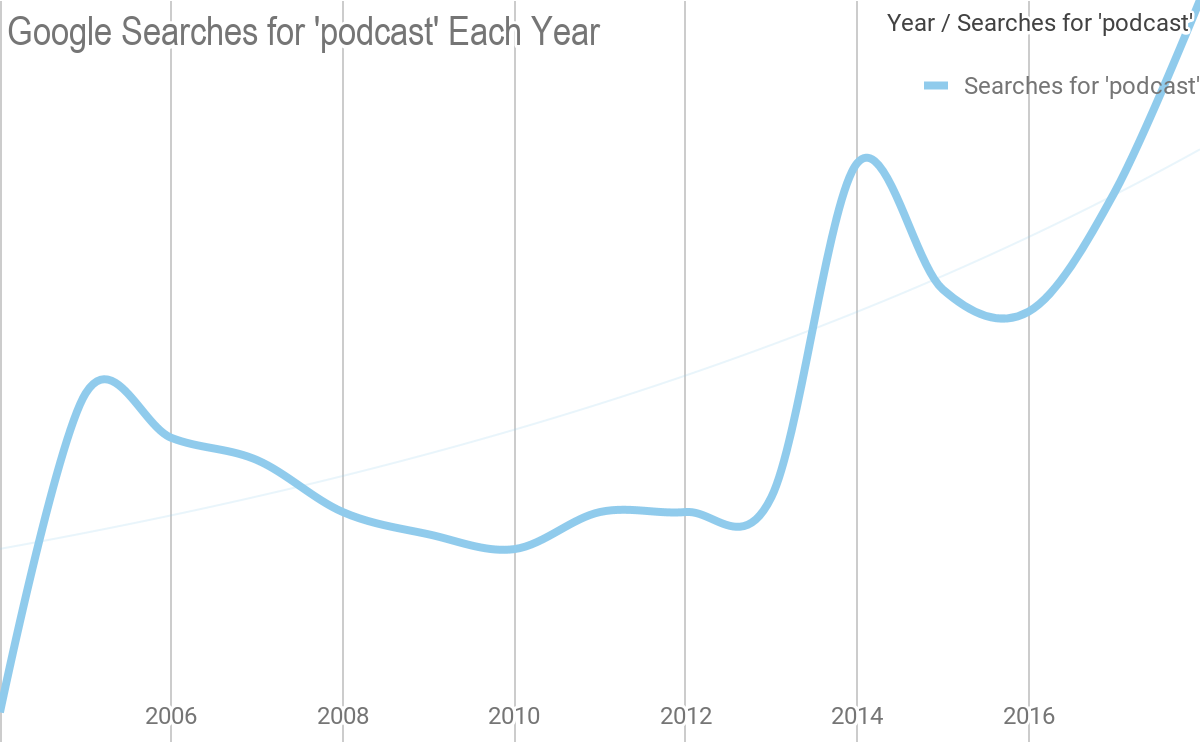
On October 1st 2004 there were 2750 hits on Google’s search engine for the word ‘podcast’. This number doubled every few days, showing exponential growth in the interest in podcasts. One year later there were over 100,000,000 searches for the word.

Apple Moves In, Giving Podcasting a MAJOR Boost
Within a year of the first podcast directory being founded, Apple added a podcasting directory to Itunes 4.9. Steve Jobs demonstrated how to create your own podcast and said that Apple considered podcasts ‘the future of audio’. Podcasts became increasingly accessible to listeners.
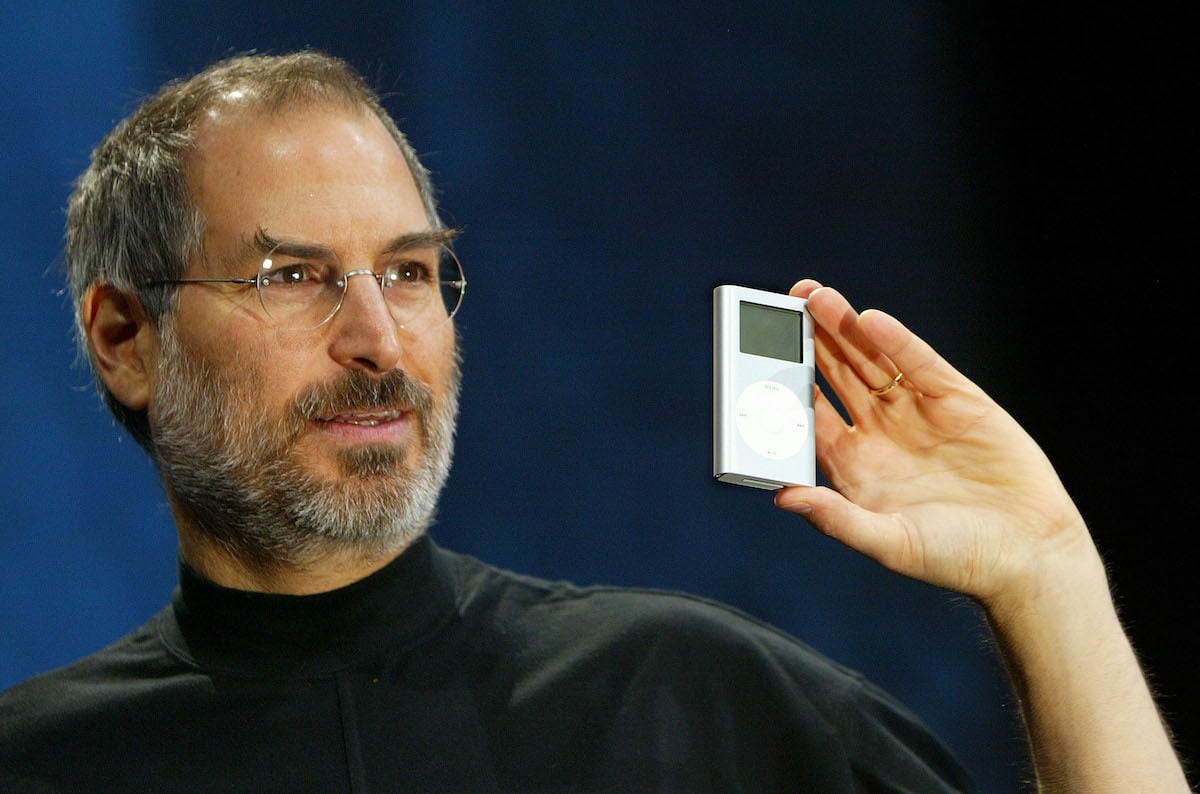
Despite podcasts being somewhat popular since 2004, it’s only in recent years that the mainstream has begun to start listening. The graph above is a useful indicator for public interest in podcasts generally but doesn’t capture the steady increase in listenership of individual podcasts, which as a collective saw progressive growth between 2004-2014. In this ten year period, the audience for podcasts was mostly limited to a growing but small tech-savvy minority.
However, this started to change after 2013. The reasons for this are unclear but many researchers point towards increased mobility, better production methods and a surge in content that appeals to the wider public as opposed to more niche audiences.
Serial is Released and Millions Listen
In 2014, podcasting was brought to the mainstream with Serial, a spin-off from The American Life and millions listen in. Attracted to the series by gripping plots and morbid curiosity, many listeners have unknowingly taken a gateway drug to the world of podcasts. Even well-established podcasters have seen a spike in their following since Serial became popular.
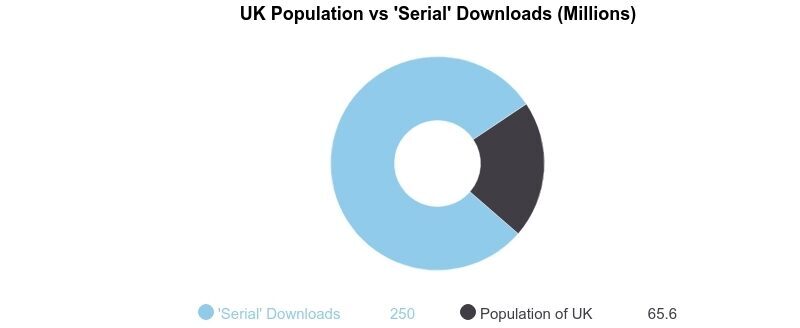
Check Serial out for yourself:
Everything is On-Demand with Smart Devices
Podcasts were named by combining the words ‘iPod’ with ‘broadcast’. That’s because originally you had to physically download the audio content onto your computer and then move it onto an iPod, which wasn’t connected to the internet. The rise of iPhones and high-speed data changed the game. Suddenly you could use your iPhone and 4G to stream podcasts wherever you are. The largest barrier stopping people from listening to podcasts was obliterated!
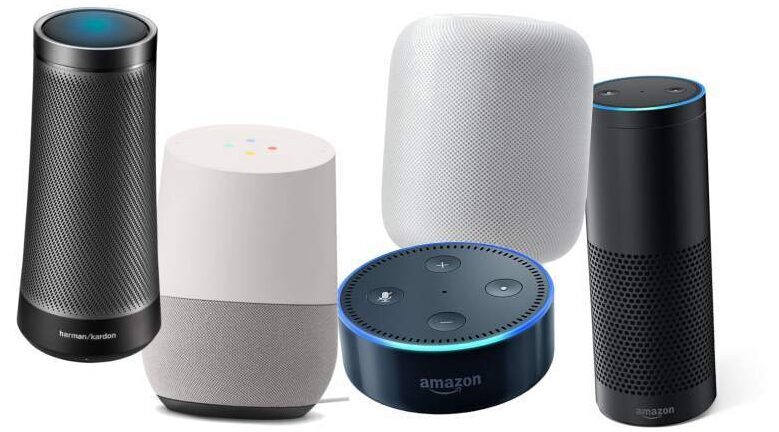
Another type of hardware that’s boosting podcast listenership is the smart speaker. They’ve made a BIG splash because 28% of smart speaker owners use them to play a podcast each week and the number of people that own smart speakers is projected to continue rising. These devices allow you to easily listen to podcasts while cooking or cleaning.
The trend over time is that podcasts are increasing in quantity, quality, and accessibility and that’s driving up the number of listeners. There’s been a gradual increase in awareness of podcasts over time along with huge spikes of increased listenership resulting from new platforms and wildly popular content.
Reflecting on podcasting history inspires more questions about the future. What’s the next platform to boost podcast accessibility? How will the IOT and new hardware change how people listen to podcasts? What content could attract a mainstream audience again as Serial did? Will podcasts always be the little brother in the media family, or will they grow into a giant?
Whatever questions you have about the future, a sound understanding of the past and present provides a firm foundation for answering them.
